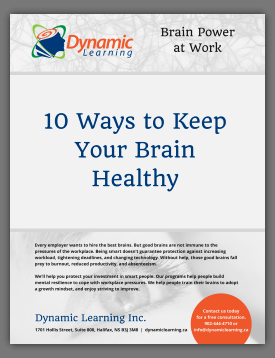This month I have spent some time exploring the value of our social connections in keeping our brains and bodies healthy. To my great surprise, I found that exercise, healthy food, continuous learning, resilience to stress, and sleep were not nearly as important as having 2 to 3 close relationships and having regular face-to-face interactions with others, preferably daily. Who knew?
Julianne Holt-Lunstad of Bringham Young University did a series of studies with tens of thousands of middle-aged people recording every aspect of their lifestyle – for example, diet, exercise, marital status, whether and how much they smoked and/or drank, control of blood pressure, their social lives, etc. Seven years later, she checked on who had died. Her results showed that out of the ten aspects she measured, the two which reduced the chances of dying the most were social integration and close relationships.
Social integration measures how much you interact with others during the day. Having a close relationship means having someone you could call on for a loan or to take you to a doctor.
According to Harvard Medical School Health Publishing, social connections like these not only give us pleasure, they also influence our long-term health in ways every bit as powerful as adequate sleep, a good diet, and not smoking.
Conversely, a relative lack of social ties is associated with depression and later-life cognitive decline, as well as with increased mortality. One study, which examined data from more than 309,000 people, found that a lack of strong relationships increased the risk of premature death from all causes by 50%.
What makes social connections healthful
Scientists are investigating the biological and behavioural factors that account for the health benefits of connecting with others. For example, they’ve found that it helps relieve harmful levels of stress, which can adversely affect coronary arteries, gut function, insulin regulation, and the immune system.
Another line of research suggests that caring behaviours trigger the release of stress-reducing hormones. Research has identified a range of activities that qualify as social support, from good listening, offers of help or advice to expressions of affection. Also, evidence suggests the life-enhancing effects of social support extend to the giver, as well as to the receiver.
All of this is encouraging news because caring involvement with others may be one of the easiest health strategies to access. It’s inexpensive, it requires no special equipment or regimen, and we can engage in it in many ways.
Humans are social and tribal
We are much happier and healthier when we are involved with a rich, rewarding, and supportive social network. Frequent interaction with others stimulates our brains, increasing our cognitive reserve and strengthening our immune systems. We can improve our connections with family and broaden our friendships while we exercise, while we cope with stress, while we eat, and while we learn.
Researchers at MIT developed sociometric badges people could wear at work to measure the effects of face-to-face interactions. See The Village Effect by Susan Pinker, page 278, for more detail. These badges showed that, by giving workers more face-to-face time with their co-workers, higher productivity resulted. Technical workers were better at solving complex problems, and call centre agents (involving 25,000 employees) improved their weaker teams’ performance 20%, increased overall performance 8% and boosted employee satisfaction by more than 10%.
So, even when you are at work, taking time to interact socially with your co-workers, seems to be of benefit not only for your productivity but also for your overall satisfaction.
Would expanding your online social connections reward your social brain? The answer is a firm NO. Clinical psychologist Ben Buchanan says research indicates those relationships of the highest quality, which last the longest, tend to be the ones where you see each other face to face.
Have a healthy, happy social life
All relationships take time and energy. Promise yourself to spend time on your closest relationships first. Be proactive in suggesting some relaxed one-on-one time with your partner, your children, close family members and close friends. Don’t neglect conflicts (letting them fester until they get out of control) and put away your phone when you are with the people you care about the most.
You will also be happier when you nurture your relationships with the groups you belong to. Chatting with your work colleagues, spending extra social time with your religious group, with your group of volunteers, with your neighbours, with your study or exercise group are all easy, inexpensive ways to strengthen your social connections and your brain.
Of the six key ways to reduce your risk of Alzheimer’s, bolstering your social life is not only the most important, but it can be woven into at least four others.
- Exercise with a friend or even lead your exercise group. Helping to reduce somebody else’s stress is not only good for them, giving help is a great stress reducer for you.
- Cooking for others and sharing a meal reinforces social bonds.
- Adding a social element to your learning can be done in many ways. Computer games, hand-eye coordination sports, learning a new language, taking dancing lessons, doing puzzles, playing board games, improving your skills with musical instruments, learning to draw, paint, or sculpt, becoming a tutor, or volunteering to cook or help with a craft, are all ways to keep your brain healthy and your life interesting.
- If you already have a life partner, adding a social element to your sleep would not help that close relationship. However, if you sleep alone, looking for a life partner could be great fun and much more likely to be successful when you also do all the other activities I have suggested here.


